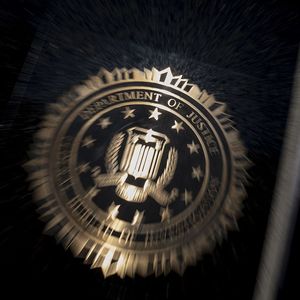Investigative journalist Joseph Menn, author of the recently released Cult of the Dead Cow: How the Original Hacking Supergroup Might Just Save the World has a history of writing books to explain the often-complicated intersection of history, technology and moral decision-making.
His latest book traces the origins of a once obscure Texas-based group of hackers that called themselves ‘Cult of the Dead Cow’, named for a cattle slaughterhouse. While many of the group’s hackers prefer to remain unknown, at least one of them is running for President. Beto O’Rourke’s one-time affiliation with the group was a headline-grabbing factoid that emerged with the book’s release.
Menn is hoping that his latest work will stoke deep thought over what it means to be a hacker, where the Internet is headed, and the key decision-makers who will get us there.
UnderCover caught up with Menn to talk about his investigative journey and what he hopes readers will take away from his latest work.
UnderCover: Tell us a little bit about yourself and how you ended up writing this book.
Menn: I’ve been doing increasing deep and investigative stories around cyber security for 20 years at the Los Angeles Times, Financial Times and now Reuters. I have also written three books in that time, starting with the definitive story of Napster. Then I wrote Fatal System Error, which was an entertaining tale of the pursuit and capture of three Russian criminal hackers and what happened when the U.K. detective tried to go up the food chain and get their bosses, only to be turned away by the FSB. Though it was a fun tale, the deeper point was that Russian intelligence was in cahoots with hacking mobsters and that such alliances are one of a few reasons that cyber security is basically unfixable in its current state.
Fatal System Error was a big hit, and a lot of other books since have cast more light on one or another of the core problems.
But now that everyone agrees things are terrible, I wanted to do something more helpful: To figure out as best I could what the right way forward is, then find a tale to illustrate that way and inspire people to take it.
UnderCover: What was your attraction to this hacking supergroup?
Menn: The Cult of the Dead Cow were real pioneers through three decades and continue to wield influence for the good in government, the private sector and among nonprofits and activists. Its members invented the modern hacking conference, the coordinated disclosure of software vulnerabilities with the vendors, and the concept of hacktivism. They were also an eclectic and entertaining bunch, making them fun to learn about, and they were a big tent—people who wanted to work for the government and people who would never dream of it. Oh, and as the book was about to go to press, one of the group declared he was running for president.
UnderCover: How are the stories portrayed in the book relevant to what’s happening today?
Menn: Hacktivism is going to be with us forever. I show that the Western intelligence community was surprisingly close to its birth, when the cDc went after China, and that Russian intelligence may be behind more recent hacking attacks on spyware vendors. Also, the tech giants are now under fire from multiple sides, and they and their employees can learn a lot from people who were forged in the moral cauldron of hacking in the 1980s, 1990s and 2000s.
UnderCover: Given what you’ve learned in the course of your research for the book, and your work as a journalist with Reuters, what lessons can be taken from your book that could lend a national security benefit in the coming years, if heeded?
Menn: Do not underestimate the power of a sense of higher calling when recruiting talent, in government or the private sector. Have more open and honest debates about what is right, or you will lose the hearts and minds of hackers just as they become the most powerful force in the world.
UnderCover: What was the hardest part of writing Cult of the Dead Cow?
Menn: Well, there was the long span of the group, large number of characters, and the technological and social complexity of what they were doing and what was happening around them. But probably the biggest thing was that they were tricksters. They marketed, they spun, and they just plain made stuff up. I had to get contemporaneous documents and go back and interview people over and over to make 100% sure I was not getting misled.
UnderCover: Who do you wish you could have interviewed for this book?
Menn: Jesse Dryden, aka Drunkfux. One of the earliest cDc members and the son of Spencer Dryden of the Jefferson Airplane, Jesse started the annual HoHoCon hacking conferences in 1990 and then vanished more than 10 years ago. I believe he is alive, but he is not speaking with anyone in the group, and he didn’t respond to my messages.
UnderCover: What is the book’s biggest contribution to understanding the cyber landscape we are facing today, when it comes to hackers and hacking groups?
Menn: There is a living, vibrant, history of the core ideas in hacking and security. Ignore them at your peril.
UnderCover: Did you stumble across any surprising events or conversations that you did not expect?
Menn: When I began writing, I knew that a former member of the Cult of the Dead Cow was in Congress. I hoped to figure out who it was and convince him to talk to me. I only figured it out because he ran for Senate, which was certainly a surprise. I am glad he agreed to talk.
That he would then run for president counts as shocking.
UnderCover: What do you hope readers will take away from reading Cult of the Dead Cow?
Menn: Hackers are critical thinkers. We have a desperate shortage of critical thinking. Ergo, we need to learn from the best and broadest-thinking hackers, right now.
UnderCover: Who do you most hope will read this book?
Menn: Teenagers just getting interested in hacking. I want them to know which shoulders they can choose to stand on. Cybersecurity has become a “clean” profession. People can go from college to a nice company and do nice things. But without the moral forge that was everywhere in the early days, they can wind up sleepwalking into doing things that they will regret. I want them to figure out their own personal ethics before they get to that point, and to see that the choices they make could make an enormous difference for good or ill.
UnderCover: Any closing thoughts?
Menn: Thank you for your work.
Have a POV? Click below and share your thoughts.
Read more Under/Cover book reviews in The Cipher Brief
Read Under/Cover interviews with authors and publishers in The Cipher Brief
Interested in submitting a book review? Check out our guidelines here.
















